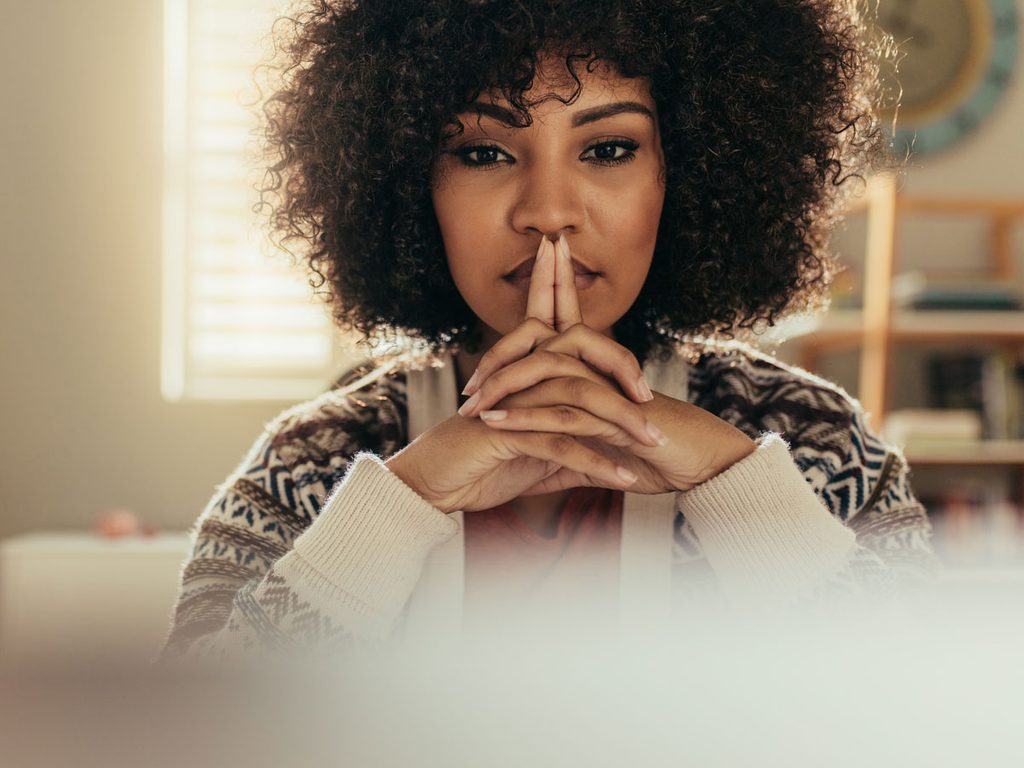Why Are There So Few BIPOC Therapists in Canada?

Therapists say barriers exist both before and after entering the profession.
“It’s been quite overwhelming, especially since the killings of George Floyd and Breonna Taylor.”
Melissa-Anne Cobbler is a licensed social worker and Black woman in Montreal who is part of Healing in Colour, an online directory where people can find BIPOC therapists across Canada. Cobbler has experienced more client requests since June, a pattern replicated across the country as Black Canadians or people of colour look to speak to therapists who understand the weight of this moment.
“[The increase] speaks to the intensity of what’s going on in our world and the overwhelming emotions that a lot of BIPOC are feeling,” Cobbler says.
As we trudge through 2020, the need for mental health care has become indispensable, especially for those who have been reliving the traumas of racism. Unfortunately, Cobbler is unable to help every client who needs her. There are just too many to fit into her part-time counselling practice. She’s also dealing with her own burn-out. She tries to share resources or refer clients, but she says there is a limited number of BIPOC therapists in Montreal.
Therapists across the county say there are myriad reasons why racialized counsellors are underrepresented, including barriers to higher education, a low starting salary, a lack of income stability and apprehensiveness about joining a predominantly white field. But BIPOC also face many other challenges in their work, both before and after setting up practice.
(Related: Why It’s Important to Know What BIPOC Stands For)
Taught through a white lens
Some BIPOC therapists feel their degree programs didn’t adequately prepare them for marginalized clients.
Nadine Tilma is a registered therapeutic counsellor in Vancouver who focuses on having an anti-oppressive practice. She thinks the mental healthcare education system prepares counsellors to work with a certain population, but not the communities she wants to reach.
“It prepares you for the non-racialized community… it definitely did not prepare me to work with the intricate traumas of people who are oppressed in different intersections.”
Other therapists interviewed for this story said they had to look outside of their curricula to learn how to support their clients and build a practice consistent with their values, including reading work by BIPOC and queer scholars, seeking out mentorship and support from other therapists, and digging into lived experiences.
Some even question the long-held foundations of psychotherapy or social work. Meera Dhebar works as a therapist and clinical supervisor in Vancouver. In her work supervising other therapists, she encourages them to think about their own biases.
“[There’s this presumption] that a therapist should always be objective, neutral, blank, without cultural identity and without judgment. That’s not true. If we accept that racism is all around us, we are all influenced by it. Why wouldn’t that influence a therapist? Those identities don’t stay in the waiting room.”
Most literature on counselling is written from a white lens, Dhebar says, for white therapists learning how to work with people unlike them. There is little guidance on how a counsellor of colour can work with people in their communities.
(Related: 9 Signs Your Therapist Is Helping You)
The burden of representation
Several therapists talked about the burden of having to be a “representative” in their classrooms, clinical placements, or workplaces, because they were usually the only BIPOC.
“There is this illusion that BIPOC counsellors will take care of their own community,” Tilma says, which often includes offering more affordable or free options for their services. That illusion creates even more barriers for a counsellor who is already navigating a world of existing systemic barriers, explains Tilma. “That’s an unfair burden.”
“We need to put in place systemic supports for therapists and clients alike to create opportunity for care and healing,” Tilma says. Unless white therapists learn to make practices truly inclusive and safe, therapists like her will always be underpaid and overworked.
A responsibility to community
Premala Matthen and Yasmin Hajian, therapists and co-founders of Healing in Colour, have experienced their fair shares of challenges too. Matthen contended with racism and violence during her education, which alienated her from the profession. Hajian worked with clients who questioned her expertise. They both overcame these challenges because they saw a deep need in their communities.
Though not part of their original plan, the Healing in Colour project has helped build a small but mighty network of therapists pushing for change. “There’s lots of things that could happen in the future, there are a lot of seeds being planted, says Hajian. “I think that there’s going to be a lot of positive change that will come.”




